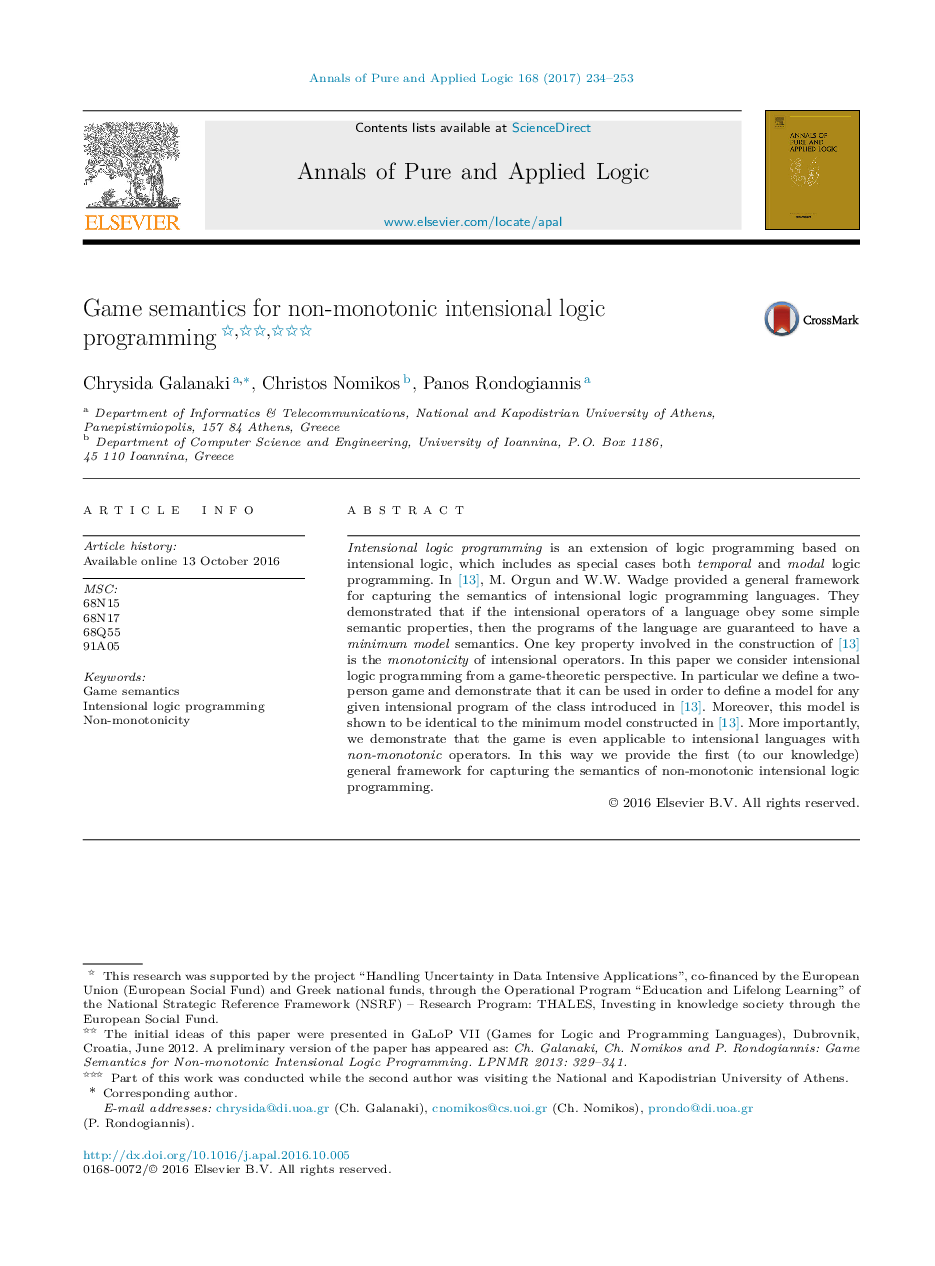| Article ID | Journal | Published Year | Pages | File Type |
|---|---|---|---|---|
| 5778162 | Annals of Pure and Applied Logic | 2017 | 20 Pages |
Abstract
Intensional logic programming is an extension of logic programming based on intensional logic, which includes as special cases both temporal and modal logic programming. In [13], M. Orgun and W.W. Wadge provided a general framework for capturing the semantics of intensional logic programming languages. They demonstrated that if the intensional operators of a language obey some simple semantic properties, then the programs of the language are guaranteed to have a minimum model semantics. One key property involved in the construction of [13] is the monotonicity of intensional operators. In this paper we consider intensional logic programming from a game-theoretic perspective. In particular we define a two-person game and demonstrate that it can be used in order to define a model for any given intensional program of the class introduced in [13]. Moreover, this model is shown to be identical to the minimum model constructed in [13]. More importantly, we demonstrate that the game is even applicable to intensional languages with non-monotonic operators. In this way we provide the first (to our knowledge) general framework for capturing the semantics of non-monotonic intensional logic programming.
Related Topics
Physical Sciences and Engineering
Mathematics
Logic
Authors
Chrysida Galanaki, Christos Nomikos, Panos Rondogiannis,
